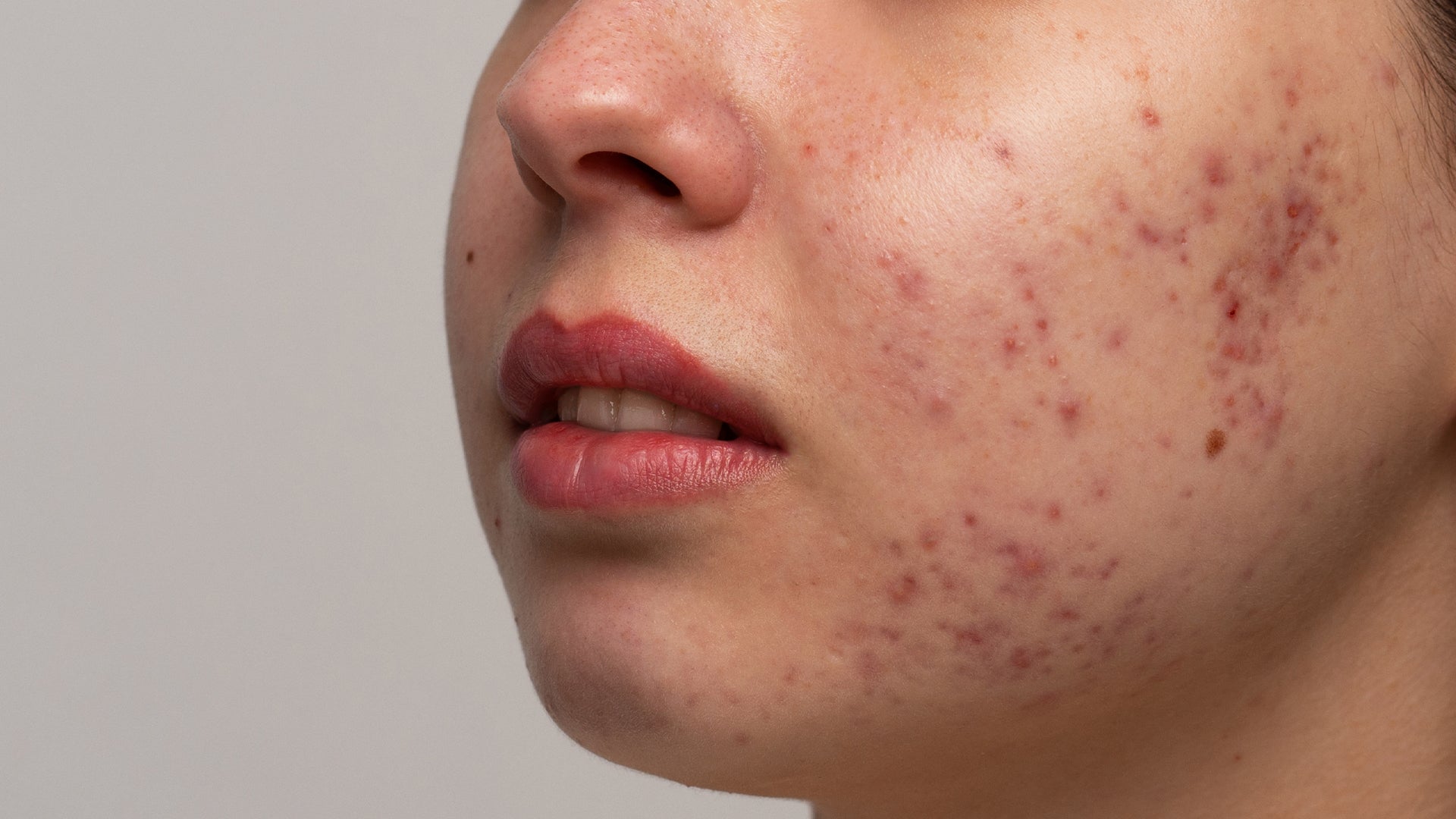In our fast-paced world, stress has become a common, almost constant companion. Whether it’s juggling a hectic work schedule, managing personal relationships, or dealing with the demands of everyday life, stress seems to be everywhere. But did you know that this relentless pressure isn’t just a mental strain? It could also be sabotaging your skincare efforts. While you may be following a meticulous skincare routine, incorporating top-quality products, and maintaining a healthy diet, stress can undermine all your hard work and leave your skin looking less than radiant.
In this article, we’ll explore how stress affects your skin, why it’s such a potent force in skincare sabotage, and what you can do to mitigate its impact. So, sit back, relax (as much as you can!), and let’s dive deep into the connection between stress and your skin.
The Science Behind Stress and Skin
Before we get into the nitty-gritty of how stress harms your skin, let’s first understand what happens in your body when you’re stressed. Stress triggers a cascade of responses, all aimed at helping you deal with whatever is causing the pressure—be it a work deadline, an emotional upset, or a physical challenge. This is known as the “fight or flight” response, and it involves a flood of hormones, such as cortisol, adrenaline, and norepinephrine, that prepare your body to react quickly.
Cortisol: The Skin’s Worst Enemy
Among all the stress hormones, cortisol is arguably the most influential when it comes to skincare. Known as the “stress hormone,” cortisol is released by your adrenal glands during periods of stress. In moderate amounts, cortisol helps the body respond to immediate threats. However, chronic stress leads to elevated cortisol levels in your bloodstream, which can wreak havoc on your skin.
Cortisol increases the production of sebum (oil) in your skin. While sebum is necessary for keeping your skin hydrated, too much of it can clog pores, leading to acne outbreaks. Moreover, prolonged exposure to high levels of cortisol can lead to skin thinning, making your skin more vulnerable to damage from environmental stressors like UV rays and pollution.
Inflammation: The Skin’s Silent Saboteur
Stress doesn’t just affect your skin on a surface level—it also triggers inflammation, which can have long-lasting effects. Inflammatory responses in the body are a natural defense mechanism, but when stress is constant, this inflammation can become chronic, and that’s where the problems begin.
Chronic inflammation manifests as redness, puffiness, and sensitivity, which can aggravate existing skin conditions such as rosacea, eczema, and psoriasis. It can also contribute to the formation of wrinkles and fine lines by breaking down collagen and elastin, two proteins that help keep your skin firm and youthful.

Blood Flow and Oxygen Supply
When you’re stressed, blood is redirected away from your skin and toward vital organs like the heart and muscles to prepare for action. This reduced blood flow means your skin isn’t getting the oxygen and nutrients it needs to stay healthy. Over time, this can lead to a dull complexion, increased dryness, and a lackluster appearance.
How Stress Manifests on Your Skin
Now that we understand the science behind stress, let’s take a look at some of the common ways it manifests on your skin.
1. Acne and Breakouts
One of the most immediate and visible effects of stress on the skin is the development of acne. When cortisol levels spike, it triggers the sebaceous glands to produce more oil. This excess oil can clog pores and trap dirt, leading to the formation of pimples and blackheads. Stress-induced acne often appears on the face, chest, and back, and it may be accompanied by painful cysts or pustules.
2. Dryness and Sensitivity
When stress elevates cortisol levels, it can disrupt the skin’s natural barrier function. This makes your skin more susceptible to moisture loss, resulting in dryness and tightness. Additionally, stress-induced inflammation can make the skin more sensitive to environmental irritants, causing it to become red, itchy, or inflamed.
3. Premature Aging
Stress has been linked to the breakdown of collagen and elastin, two essential proteins responsible for maintaining the skin’s structure and elasticity. Over time, the degradation of these proteins can lead to sagging, fine lines, and wrinkles. When combined with other stress-related factors like lack of sleep, poor diet, and increased alcohol consumption, premature aging can become even more pronounced.
4. Flare-ups of Pre-existing Skin Conditions
For those already dealing with skin conditions like eczema, psoriasis, or rosacea, stress can trigger flare-ups. Emotional stress is a common trigger for rosacea flare-ups, causing redness, inflammation, and visible blood vessels. Similarly, eczema and psoriasis can worsen under stress, causing increased itching, irritation, and scaling.
How Stress Impacts Your Skincare Routine
So, you’re following all the right skincare steps—cleansing, toning, moisturizing, and applying serums and treatments tailored to your skin’s needs. But if you’re stressed, all these efforts may seem futile. Here’s how stress interferes with your skincare routine:
1. Skipping Skincare Due to Lack of Time or Energy
Stress often leads to fatigue, and when you’re mentally and physically drained, taking the time to follow a skincare routine can feel like a burden. You might find yourself skipping steps like cleansing or moisturizing, which can exacerbate skin issues like dryness, breakouts, or irritation. A lack of consistency in your routine can prevent your skin from fully benefiting from the products you’re using.
2. Poor Diet and Dehydration
Stress can lead to unhealthy eating habits, such as craving comfort foods that are high in sugar, salt, and unhealthy fats. These foods can contribute to skin problems like acne, dullness, and inflammation. Additionally, stress can cause dehydration, which leaves your skin looking lackluster and prone to dryness.
3. Sleep Deprivation
Stress is a common culprit behind sleepless nights. Lack of sleep not only leaves you feeling tired and irritable, but it also accelerates the aging process by increasing the production of cortisol. When you don’t get enough rest, your skin’s natural repair process is disrupted, leading to dull, tired-looking skin, as well as the formation of fine lines and dark circles under your eyes.

How to Combat Stress and Protect Your Skin
While stress may be inevitable, there are several ways you can manage it to protect your skin and restore balance. Here are some tips to help you keep stress in check and maintain a glowing complexion:
1. Prioritize Self-Care and Relaxation
One of the most effective ways to manage stress is through relaxation techniques. Incorporating practices like meditation, yoga, deep breathing, and mindfulness into your routine can significantly reduce stress levels. Taking time each day for self-care not only helps calm your mind but also boosts blood circulation and oxygen delivery to your skin, improving its overall health and appearance.
2. Maintain a Consistent Skincare Routine
Even when you’re stressed, it’s essential to stick to your skincare routine. Consistency is key when it comes to achieving results. Ensure you’re using gentle, hydrating products that support the skin’s natural barrier function. Look for ingredients like hyaluronic acid, ceramides, and niacinamide, which help to replenish moisture, soothe inflammation, and calm stressed skin.
3. Practice Stress-Relieving Activities
Incorporating physical activity into your daily routine can help reduce the physical effects of stress on your body and skin. Exercise increases blood circulation, which delivers oxygen and nutrients to your skin cells. Moreover, it promotes the production of endorphins, which help combat stress and improve your mood.
4. Get Enough Sleep
Never underestimate the power of a good night’s sleep. Aim for 7-9 hours of quality rest each night to allow your skin to repair itself. Create a sleep-friendly environment by minimizing distractions, dimming the lights, and sticking to a consistent sleep schedule. Your skin will thank you in the morning with a more refreshed, radiant appearance.
5. Stay Hydrated and Eat Well
A balanced diet rich in antioxidants, healthy fats, and vitamins can help keep your skin healthy and resilient. Omega-3 fatty acids, found in foods like salmon, walnuts, and chia seeds, can help reduce inflammation. Additionally, drinking plenty of water throughout the day helps keep your skin hydrated from the inside out, preventing dryness and dullness.
6. Seek Professional Help if Necessary
If you find that stress is significantly affecting your skin, consider consulting a dermatologist or skincare professional. They can recommend treatments or products that specifically target stress-related skin issues, such as acne, redness, or premature aging.
Final Thoughts
While stress may feel like an unavoidable part of life, its impact on your skin doesn’t have to be. By understanding the connection between stress and skincare and taking proactive steps to manage stress, you can keep your skin looking its best, no matter what life throws your way. Prioritizing self-care, sticking to a consistent skincare routine, and practicing stress-relieving techniques will go a long way toward ensuring your skin stays healthy and glowing.












































